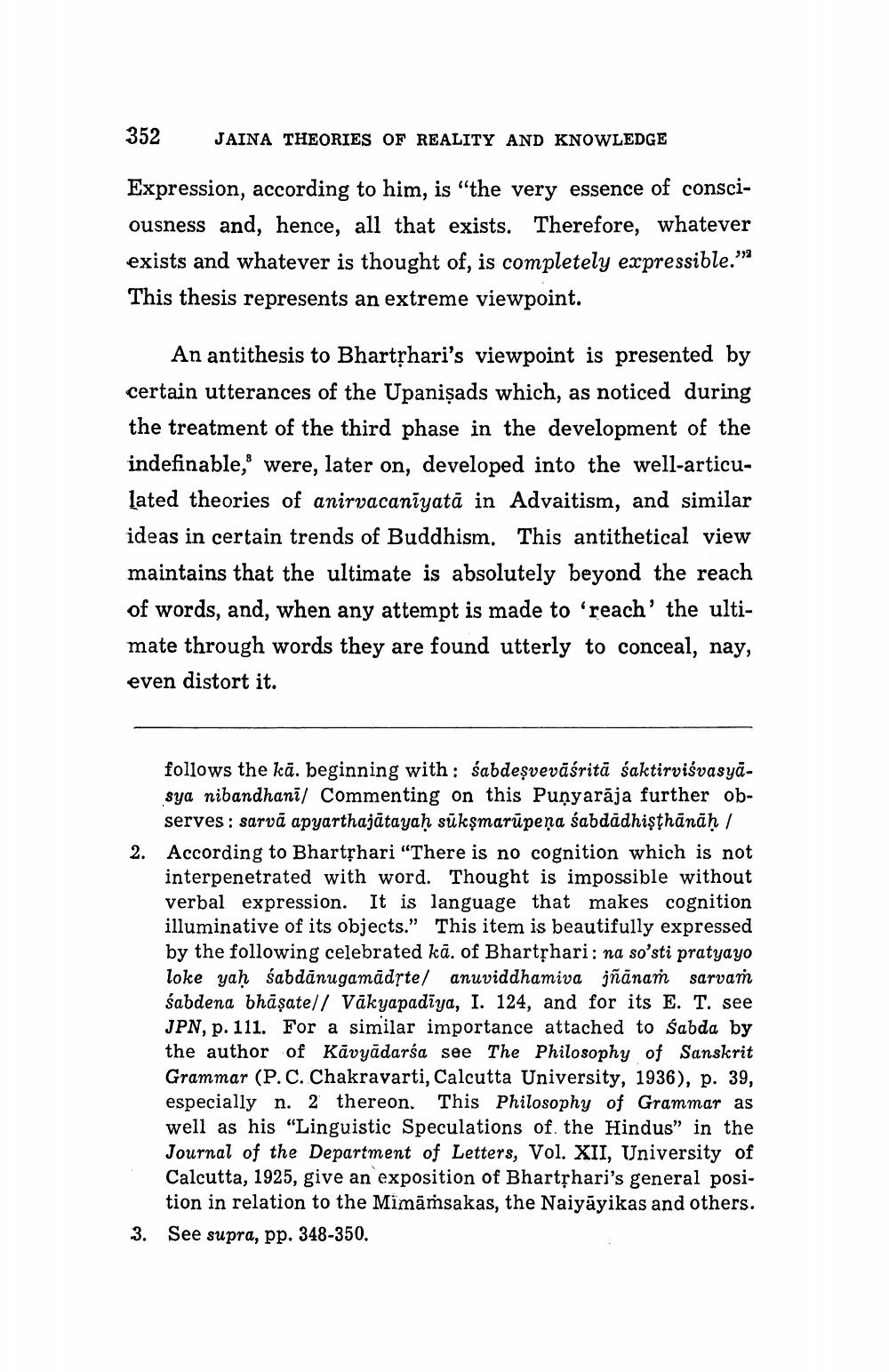________________
352
JAINA THEORIES OF REALITY AND KNOWLEDGE
Expression, according to him, is "the very essence of consciousness and, hence, all that exists. Therefore, whatever exists and whatever is thought of, is completely expressible." This thesis represents an extreme viewpoint.
An antithesis to Bhartphari's viewpoint is presented by certain utterances of the Upanişads which, as noticed during the treatment of the third phase in the development of the indefinable, were, later on, developed into the well-articulated theories of anirvacanīyatā in Advaitism, and similar ideas in certain trends of Buddhism. This antithetical view maintains that the ultimate is absolutely beyond the reach of words, and, when any attempt is made to 'reach' the ultimate through words they are found utterly to conceal, nay, even distort it.
follows the kā, beginning with: śabdesvevāśritā saktirviśvasyāsya nibandhani/ Commenting on this Punyarāja further ob
serves: sarvā apyarthajātayaḥ sūkşmarūpeṇa sabdadhişthānāḥ / 2. According to Bhartshari "There is no cognition which is not
interpenetrated with word. Thought is impossible without verbal expression. It is language that makes cognition illuminative of its objects." This item is beautifully expressed by the following celebrated kā. of Bhartphari: na so'sti pratyayo loke yah sabdānugamādstel anuviddhamiva jñānam sarvan śabdena bhāsatel/ Vākyapadiya, I. 124, and for its E. T. see JPN, p. 111. For a similar importance attached to sabda by the author of Kāvyādarśa see The Philosophy of Sanskrit Grammar (P. C. Chakravarti, Calcutta University, 1936), p. 39, especially n. 2 thereon. This Philosophy of Grammar as well as his "Linguistic Speculations of the Hindus" in the Journal of the Department of Letters, Vol. XII, University of Calcutta, 1925, give an exposition of Bhartshari's general posi
tion in relation to the Mimamsakas, the Naiyāyikas and others. 3. See supra, pp. 348-350.




